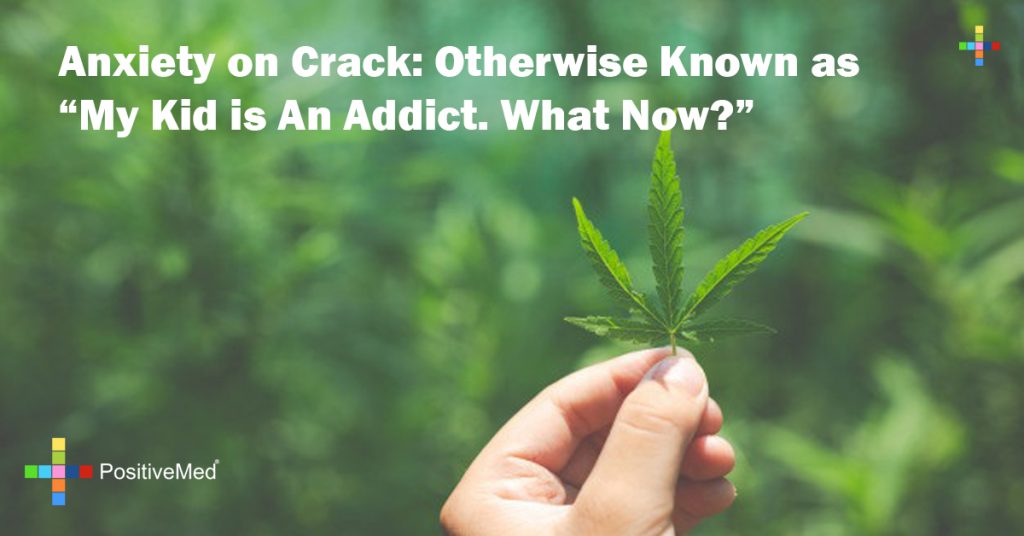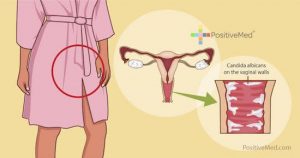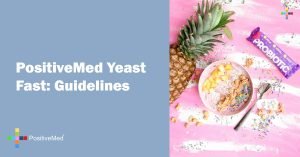
 You have just found out that your kid is addicted to drugs or alcohol. This kid could be a young teen or an adult child, it does not matter, finding out that they are owned by addiction is news dreaded by any parent. You feel confused, terrified, furious and lost. You don’t know where to turn. I urge you to take a deep breath, relax your shoulders, and slow your thoughts. It is time to make an action plan. There are things you can do to make this experience less traumatic for everyone.The first and hardest step is to watch your mouth. Frustration, fury, feeling manipulated and lied to can cause you to say things you will regret. It is easy to lash out at your addict and say words that will never be forgotten. These words will color your relationship forever and can affect how your addict sees you and themselves for the rest of their lives. Taking that deep breath and getting centered can give you a moment to think before you speak. At a time when you feel like you are living inside of the fear, this is harder than it sounds.As a parent you are used to being able to kiss it and make it better, to “fix it”. You cannot fix this. There are few situations more terrifying for a parent than having absolutely no ability to help your child. Many parents feel guilty, blaming their kid’s drug use on the fact that they missed a soccer game once when the addict was a child, didn’t potty train them sensitively enough or had a contentious divorce. Once that toxic guilt kicks in the addiction insidiously manipulates the parent-child relationship. A guilty parent will twist themselves into a pretzel trying to make things right. Co dependence kicks in and the parent becomes more concerned with the needs of the addict than their own needs. People who are codependent often take on the role as a martyr; they constantly put others’ needs before their own and in doing so forget to take care of themselves. When it comes to arguments, codependent people also tend to set themselves up as the “victim”. When they do stand up for themselves, they feel guilty. I heard it put one time, “Do you have to take your child’s temperature to see how you feel?” If your answer to this is yes, then you need to take action to address the codependence.
You have just found out that your kid is addicted to drugs or alcohol. This kid could be a young teen or an adult child, it does not matter, finding out that they are owned by addiction is news dreaded by any parent. You feel confused, terrified, furious and lost. You don’t know where to turn. I urge you to take a deep breath, relax your shoulders, and slow your thoughts. It is time to make an action plan. There are things you can do to make this experience less traumatic for everyone.The first and hardest step is to watch your mouth. Frustration, fury, feeling manipulated and lied to can cause you to say things you will regret. It is easy to lash out at your addict and say words that will never be forgotten. These words will color your relationship forever and can affect how your addict sees you and themselves for the rest of their lives. Taking that deep breath and getting centered can give you a moment to think before you speak. At a time when you feel like you are living inside of the fear, this is harder than it sounds.As a parent you are used to being able to kiss it and make it better, to “fix it”. You cannot fix this. There are few situations more terrifying for a parent than having absolutely no ability to help your child. Many parents feel guilty, blaming their kid’s drug use on the fact that they missed a soccer game once when the addict was a child, didn’t potty train them sensitively enough or had a contentious divorce. Once that toxic guilt kicks in the addiction insidiously manipulates the parent-child relationship. A guilty parent will twist themselves into a pretzel trying to make things right. Co dependence kicks in and the parent becomes more concerned with the needs of the addict than their own needs. People who are codependent often take on the role as a martyr; they constantly put others’ needs before their own and in doing so forget to take care of themselves. When it comes to arguments, codependent people also tend to set themselves up as the “victim”. When they do stand up for themselves, they feel guilty. I heard it put one time, “Do you have to take your child’s temperature to see how you feel?” If your answer to this is yes, then you need to take action to address the codependence.
The next step is developing some healthy boundaries. Telling your child “I completely trust in your ability to handle this situation” conveys trust that you believe in their competence, states that you know the problem belongs to them, and empowers them to take action instead of sitting helplessly while you jump through hoops that do not belong to you.
If your child lives at home, defining a zero tolerance policy for drug or alcohol use is vital. Unless you are willing for your child to kill themselves under your roof, zero tolerance is an important first step. You can buy urine drug tests or alcohol breath tests from the drug store or online. Get them and use them on a regular basis and at random times as well. Know that addicts learn how to work around drug screens. If you feel like your addict is using, seek outside testing from a family doctor or treatment center. If the test is positive, I urge you to take action immediately and provide the addict the opportunity to go elsewhere to engage in drug or alcohol using activities. There is no reason your family should have to stand by helplessly watching your loved one self destruct. Siblings can be scarred for life at witnessing ongoing family conflict and using behavior. Many parents will draw the line in the sand and when the addict is caught using will forgive and forgive again when faced with promises and tears. Stand firm. The sooner your addict faces consequences for his/her actions the sooner they can begin facing up to their problem and getting help. Loving the child with boundaries is what will help bring them back to you. Do not allow them to abuse your boundaries to the point where you cannot tap into the love anymore.
 Making distinction between the child you love and the addiction is so important. Addiction is a beast that takes up residence inside of your child. It is a beast that will steal drugs from your medicine cabinet, money from your wallet, will lie to you without a blink and will “use” you to the extent that you will allow the using behavior. When the beast rears its head it is helpful to see it as an illness and not as an infraction against yourself and your family. It really has very little to do with you and everything to do with your addict and their illness. Making the distinction allows you to love the child and hate the beast. This is still the same person you rocked as a baby, whose boo boos you kissed and whom you tucked in at night. Do not lose sight of this.
Making distinction between the child you love and the addiction is so important. Addiction is a beast that takes up residence inside of your child. It is a beast that will steal drugs from your medicine cabinet, money from your wallet, will lie to you without a blink and will “use” you to the extent that you will allow the using behavior. When the beast rears its head it is helpful to see it as an illness and not as an infraction against yourself and your family. It really has very little to do with you and everything to do with your addict and their illness. Making the distinction allows you to love the child and hate the beast. This is still the same person you rocked as a baby, whose boo boos you kissed and whom you tucked in at night. Do not lose sight of this.
Mindfulness can be so helpful in allowing you to keep peace during this process. Mindfulness is the process of paying attention, without judgment to the present moment. So often when we are feeling fearful or anxious we are actually making up scenarios in our imagination and believing in them. We are living in the future. Radical focus on the present moment, the breath, the physical sensations of the cool air in the room, the feel of your feet on the floor, the sounds coming from the stereo, the smells from the kitchen, bring you into the here and now and allow you to become grounded. Noticing the anxious energy vibrating in your body without resistant is important. That energy becomes trapped when we resist it, and we are stuck with an uncomfortable knot in our stomach or chest. Just noticing that the energy is there and visualizing it flowing through your body instead of resisting it goes a long way towards helping us become more comfortable.
If your child is willing to pursue treatment then your role will be a little easier. If you have insurance, easier still. There are many competent treatment centers in your area that are structured in intensity according to the stage of treatment your child needs. Does your kid need to medically detox? Inpatient medical services may be appropriate for a few days or a week to safely address his/her issues. If not then a few days at an inpatient facility to get your addict stabilized might be in order. There are facilities that have Intensive Outpatient programs that last 4-5 hours a day that consist of individual counseling, family therapy, group therapy and psychoeducation. There are many different philosophies of treatment as well. 12-Step programs are probably the most well known, but there are readiness for change, relapse prevention, enthusiastic sobriety to name a few. You could completely overwhelmed at all of the choices. The job of the treatment center is to help you to navigate the myriad of choices and to educate you on the philosophy of treatment used by the facility and what that will look like for your child. The one thing to remember is that the most important factor in what type of treatment will work for you addict is his commitment to sobriety.
Until your addict agrees to seek help it is important for you and your family to engage in radical self care. This consists of creating an atmosphere of love and understanding that you are all going through stress, and that you are all still learning. Going beyond what you normally need to do to recharge your batteries and to encourage each other is warranted now. If it is a little extra exercise, a nap in the afternoon or an evening in front of the fire just sharing your heart with others who are aware of your family struggle, I urge you to create a gentle, supportive home that allows you to begin to heal.
With every difficult situation in life comes a gift. Look for the gift that addiction will bring to your family. Whether it is better communication, a more honest look at who you all are or eventually having a desire to give back, it always comes with a gift. Never give up believing in your child. Never lose sight of the future you held when you rocked them as a baby. Never give up hope. Keep the porch lights on…
If you need support in navigating the emotions surrounding your loved one’s addiction feel free to contact me at 770-789-0847, email me at [email protected] or see my website www.carolyntuckertherapist.com to set an appointment.






